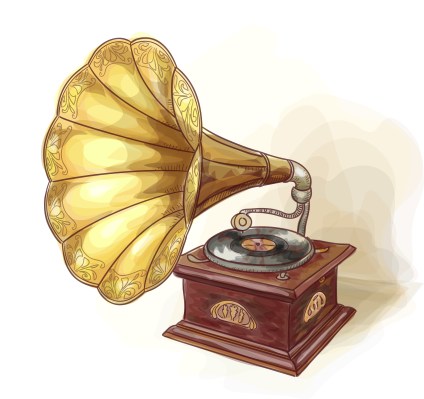Audio, the spoken word, is humanity’s primary means of sentient communication: the sounds a fetus hears in utero; a lover’s whisper; a marriage proposal… all leave deep imprints on our hearts and minds. We use sound to accentuate and transmit our emotions; our aural ability is a primary sense that is deeply connected to emotion.
In fact, much research indicates that hearing is the most important of the five senses. We detect harmful and dangerous sounds with our ears — if a fire alarm rings in the middle of the night, we depend on our hearing to alert us of impending danger. While historically sight has been the most valued sense, audio has been catching up.
As the technological era dawned, audio enjoyed a heyday. Thomas Edison’s phonograph, Guglielmo Marconi’s invention of the radio and Orson Welles’ successful dramatization of “The War of the Worlds,” in what would essentially become the world’s first popular podcast, all left their imprint on history.
But while public programming enjoyed an auditory renaissance in the twentieth century, audio was losing out to an antiquated rival in our day-to-day lives. For generations, humanity’s primary means of communication across distance was the written word: a shortcoming so critical that technology needed to be invented to fill the gap for the spoken word. Johannes Gutenberg’s printing press and the QWERTY keyboard in many senses actually backtracked our progress by prioritizing visual technologies over auditory ones.
Automatic speech recognition: the comeback
Stumbling and slowly, telephony led to research into speech recognition and voice-activated commands. Bell Labs, DARPA and lesser-known academics like Raj Reddy, Leonard Baum and others pioneered the way. IBM and, more recently, Google picked up the gauntlet along with others, and the technology is now surging forward. In the domestic arena, we see Amazon’s Echo freeing our fingers from the keyboard. Steve Jobs hated the stylus, aptly noting we’re equipped with 10 similarly shaped devices — and accordingly, auditory technology has surged forward.
Treadmills will nag us to get off our respective couches to exercise.
Now we can express our desires without a keyboard and receive responses without a screen: an all-inclusive ability to verbally roam, hands-free, within our homes, offices and cars, at no extra cost. Siri, Cortana and Genie are fully equipped to program our lives without the need to touch a single key, handling scheduling, phone calls and research with a the tap of the home button.
Senses driving the here and now
Audio technology has allowed us to return to a seamless way of communicating. Gone are keystroke text messages in favor of short pre-recorded audio notes. We initiate dialogue with Siri, Cortana and Google Now, receiving witty comebacks in a conscious back-and-forth volley between humans and artificial intelligence.
These personal assistants are expanding their set of programmed responses; for proof, just ask Siri if she beatboxes — trust me. It is not too far-fetched to believe the future of audio will help streamline tasks via voice commands and allow us a more seamless, elegant way of communicating.
As it was in the eras of Gutenberg, Edison and Marconi, the technology is incipient and rudimentary, yet it’s rapidly improving. The internet brought a world of information to our fingertips, and the IoT is wiring it all together. Imagine locating the latest sportscaster predictions for the evening’s Red Sox/Rangers match-up, which Siri finds for me.
On the horizon, programs like Alexa will ask how we like our morning coffee or offer a nudge when we run out of milk. Maybe Amazon Echo will read sections of our favorite publications, and provide route instructions for daily commutes based on up-to-date traffic patterns. Treadmills will nag us to get off our respective couches to exercise, portraying a boisterous personal trainer who keeps track of our calorie intake.
Just as we enter the world fully cognizant of our primary senses, soon they will become the primary means of how we communicate — both interpersonally and via technology — throughout our lives.
